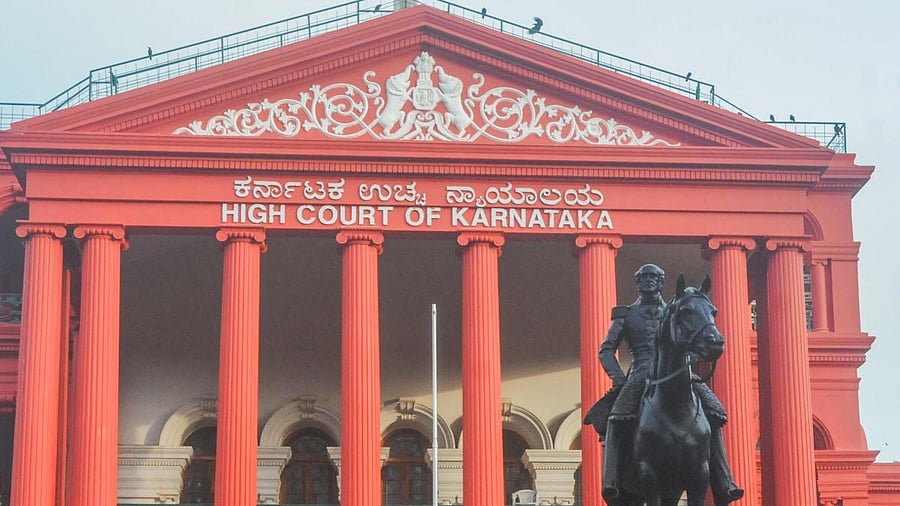
Karnataka HC.
Credit: DH Photo
Bengaluru: The Karnataka High Court has said that the legislature must amend the relevant statutes to take stringent measures to suppress the perilous activity of wheeling on roads.
“Needless to emphasise that wheeling not only results in endangering the life and safety of the rider or pillion rider, but may as well pose a serious threat to the general public at large,” Justice V Srishananda said, while refusing bail to a person caught performing wheelies.
“Statistics in this regard, reported through the media (print and electronic), resulting in fatal accidents with devastating consequences have shaken the confidence reposed in law-enforcing agencies by law-abiding citizens. Taking note of the galloping trend and alarming rise in such incidents, it is now the bounded duty of the state and its law enforcement agencies to legislate necessary legal provisions and to take stringent measures to suppress the perilous activity,” the court said.
Justice Srishananda further observed, “Legislature has to take into consideration that existing statutory provisions relating to reckless and negligent driving is hardly sufficient to curb the menace and therefore, to fill up the legislative vacuum, suitable and stringent provisions are to be incorporated by amending the Indian Penal Code and Motor Vehicles Act to complement each other.”
In the case at hand, the petitioner, Arbaz Khan, is arraigned as accused no 1 in a case registered by the Gangavati Rural police.
The police said that on October 9, 2024, they received credible information that, in the wake of the Dasara festivities, three people were doing ‘wheeling’ or ‘wheelies’ near Hemagudda Durgamma Temple. When the police attempted to intercept them, all three motorcyclists fell. As the police approached to help, the trio allegedly abused them and snatched a mobile phone from a sub-staff member, throwing it into the Tungabhadra canal. After investigation, the police filed a charge sheet against all the three men.
Khan moved the High Court after the trial court refused him bail. He contended that the police had booked a case against him due to rivalry and argued that continuing his judicial custody was unwarranted since a charge sheet had already been filed.
On the other hand, the government advocate submitted that the petitioner was a habitual offender and that such people were not entitled to the grant of bail.
Justice Srishananda noted that prima facie material, including photographs, showed that the petitioner was involved in the road rage incident by way of wheeling. “It is also pertinent to note that the act of wheeling was initially confined to urban areas on sufficiently wide and arterial roads. Over passage of time, this hazardous and perilous practice extended its tentacles even to rural areas. Younger generation riders of the motorcycle are under the misconception that the act of wheeling is bravado and indulge in such perilous stunts being unaware of the grave risks involved in the said act.”
The court further stated, “...mere filing of the charge sheet, by itself, cannot be held sufficient to entitle the petitioner to an order of bail by invoking the extraordinary jurisdiction of this court under Section 483 of the Bharatiya Nagarik Suraksha Sanhita, 2023.”
